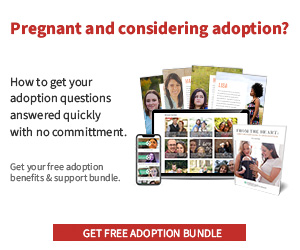The Internet is full of information for prospective adoptive parents looking to avoid adoption scams. However, expectant parents do not have their own lists of red flags. It’s unfortunate, but some prospective adoptive parents (PAPs) will promise just about anything to get a baby, without intending to keep those promises.
How can expectant parents recognize these people and choose honest parents for their children? By asking several birth mothers, adoptees, and adoptive parents, we have put together a list of red flags for expectant parents—signs that PAPs might be lying to you just to get your baby.
Are you considering placing a child for adoption? Do you want more choices with your adoption plan? Do you want to regain more control in your life? Visit Adoption.org or call 1-800-ADOPT-98. We can help you put together an adoption plan that best meets your needs.
















